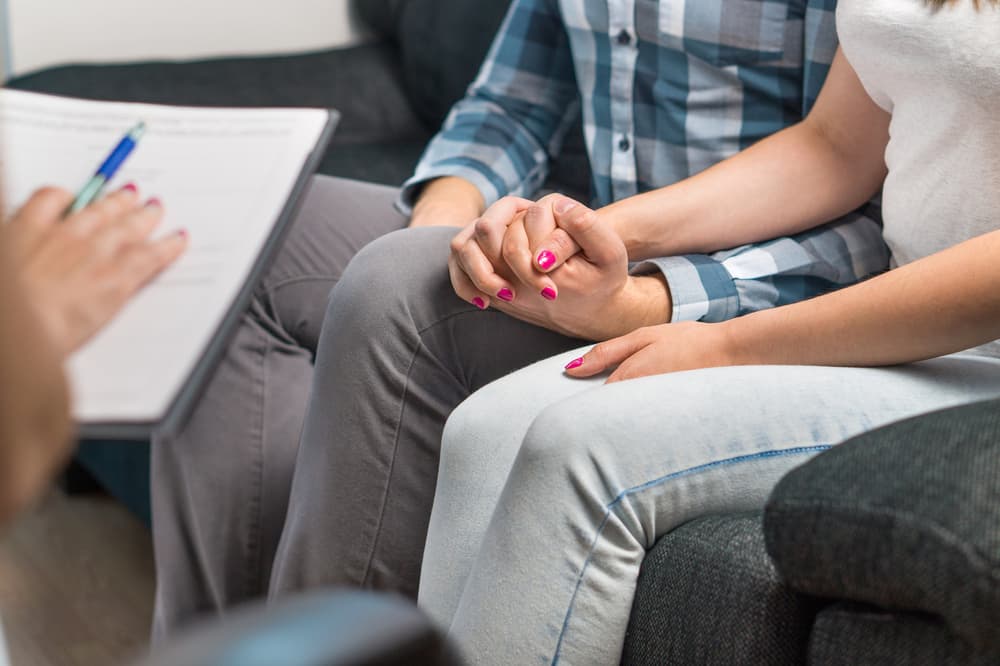
Many couples struggle with the decision to attend therapy. They are aware that there have struggles in their relationship, but unsure how to resolve them. At the Vaughan Relationship Centre, typically one partner inquiries about relationship therapy, but expresses difficulty getting their partner to commit to therapy out of fear. Here are some of the objections we hear and debunking some of the myths about couples counselling.
The therapist will pick a side and decide who is ‘right’.
Myth Debunked: Your therapist is a neutral, unbiased third-party to your relationships. It is their job to identify the miscommunications and underlying issues that the couple is unable to see due to their biases, so it is a vital part of the job that the therapist remains objective, non-judgmental, and unbiased to either partner.
The therapist will tell us to break up.
Myth Debunked: It is not your therapist’s job to have you make life altering decisions. Your couples therapist is meant to help you identify and work with the main issues at hand. It is part of the therapist’s job to help you manage and cope with any difficulties you are experiencing in the relationship, as well as help you and your partner find ways to make the relationship work better. The decision to break up comes from you or your partner, not from your therapist. If both parties want to stay together, your therapist will work with you.
The problems in my relationship will get worse.
Myth Debunked: For many couples, they have not discussed their issues in a constructive way prior to therapy. Typically, issues are discussed in an argument. As you begin to discuss issues in therapy and uncover hurt feelings, it may feel like it is worse, but it is not. Instead, you are courageously expressing your feelings for the betterment of your relationship. However, as you get further into the therapeutic process, healing should happen and increased connection.
However, some couples attend therapy with a mixed agenda: one partner wants to resolve the issues, working to stay together, and the other wants to dissolve it. If one partner is uncooperative and not aiming for a better understanding, then it is possible that the problems will go unresolved and lead to further hurt feelings. For things to improve, everyone should be willing to work on the relationship and speak about concerns constructively.
Going to couples therapy means I am weak and/or have failed in my relationship.
Myth Debunked: Not true! In fact, here at the Vaughan Relationship Centre, we believe going to couples therapy means your strong. It takes courage, and a sense of determination to make the decision to seek out the help of a professional. We see that you value your relationship. There is something to be proud of when you can admit that you really want something (in this case, your relationship), but you’re not entirely sure how to get it. Think of it this way, did you fail your high school math class just because you raised your hand and asked a few questions? No. Therapy is like this idea; sometimes, we know what the final calculation is supposed to be, but we can’t figure out which part of the formula we got wrong. This is why you asked your teacher to look at your work objectively, and identify what needs adjusting. A couples therapist does this exact thing, and they will help you in a way that creates long-lasting solutions so that the foundation of your relationship holds up. Not everyone has been reared to have healthy relationships, nor have they been taught what a healthy relationship even looks like. Therefore, going to couples therapy does not mean you failed, it could mean you were never given the proper tools to begin with and now you’re trying to grow, learn, and succeed.
We’re not on the verge of divorce, so we don’t need therapy.
Myth Debunked: Therapy does not always have to be the final effort before the couple splits. If you value maintaining your relationship, but have been noticing its decline, then couples therapy is equally meant for you too. Some couples seriously discuss divorce, meet with a lawyer, and then decide to attend therapy as one last option. And typically, therapy is less costly than a divorce!
If you would like to increase connection and communication in your relationship, contact the Vaughan Relationship Therapist. We’d be happy to support you.
